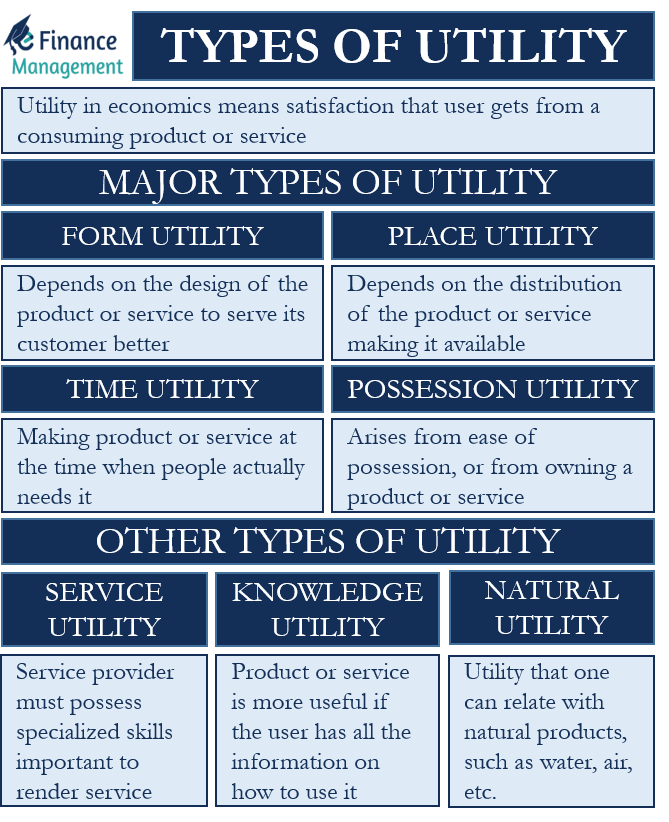Utility Work Trucks For Sale By Owner: A Comprehensive Guide to Finding the Perfect Workhorse
Introduction:
Utility Work Trucks For Sale By Owner
Utility work trucks are the unsung heroes of countless industries. They are the backbone of construction, landscaping, telecommunications, and more. When it's time to acquire one, buying directly from the owner can present significant advantages. This comprehensive guide dives deep into the world of utility work trucks for sale by owner. We will cover everything from identifying your needs and evaluating potential vehicles to negotiating the price and finalizing the purchase.
Why Buy a Utility Work Truck from a Private Owner?
Buying from a private owner can be a strategic move. It often translates to significant cost savings. Here's why:
- Lower Prices: Private sellers typically have lower overhead costs than dealerships. This often leads to more competitive pricing.
- Direct Communication: You can directly communicate with the person who used the truck. This provides valuable insights into its history, maintenance, and potential issues.
- Negotiation Flexibility: Private sellers might be more open to negotiation. This allows you to potentially secure a better deal than at a dealership with fixed prices.
- Unique Finds: You might discover specialized or customized utility trucks that are not typically available through commercial channels.

Understanding Your Needs: Defining the Ideal Utility Work Truck
Before diving into listings, you need to clarify your specific requirements.
- Type of Work: What kind of tasks will the truck be performing? Will it be hauling heavy equipment, carrying tools, or providing mobile workspace?
- Payload Capacity: How much weight will the truck need to carry regularly? Overloading can damage the vehicle and compromise safety.
- Towing Capacity: Will you be towing trailers or equipment? Determine the required towing capacity and ensure the truck is equipped for it.
-
Body Style and Configuration: Consider the necessary body style. Examples include:
- Service Body: Enclosed storage compartments for tools and equipment.
- Flatbed: Open platform for hauling large or irregularly shaped items.
- Crane Truck: Equipped with a crane for lifting and moving heavy objects.
- Bucket Truck: Equipped with an aerial lift for working at heights.

- Cabin Configuration: How many passengers need to be accommodated? Consider regular cab, extended cab, or crew cab options.
- Drivetrain: Do you need four-wheel drive for off-road capabilities? Consider the terrain and weather conditions where the truck will be used.
- Fuel Type: Diesel engines generally offer better fuel economy and torque for heavy-duty applications. However, gasoline engines might be more cost-effective for lighter tasks.
- Budget: Establish a realistic budget that includes the purchase price, taxes, registration fees, and potential maintenance costs.

Where to Find Utility Work Trucks for Sale By Owner
Several online and offline resources can help you locate utility work trucks for sale by owner:
- Online Marketplaces: Platforms like Craigslist, Facebook Marketplace, and specialized commercial vehicle websites often feature listings from private sellers.
- Industry-Specific Forums and Classifieds: Online forums and classifieds related to construction, landscaping, or other relevant industries can be valuable resources.
- Local Classified Ads: Check local newspapers and community bulletin boards for listings in your area.
- Networking: Reach out to contacts in your industry who might know of individuals selling their utility trucks.
Evaluating Potential Utility Work Trucks: A Thorough Inspection Checklist
Once you've identified potential trucks, a thorough inspection is crucial.
-
Visual Inspection:
- Body Condition: Check for rust, dents, scratches, and signs of previous accidents.
- Tire Condition: Inspect the tire tread depth, sidewall condition, and overall wear.
- Glass and Lights: Ensure all windows, mirrors, and lights are intact and functioning properly.
- Undercarriage: Look for rust, damage, and leaks.
-
Mechanical Inspection:
- Engine: Listen for unusual noises, check for leaks, and inspect the fluid levels (oil, coolant, transmission fluid).
- Transmission: Check for smooth shifting and any signs of slipping or hesitation.
- Brakes: Test the brakes for responsiveness and listen for any unusual noises.
- Suspension: Check for worn shocks, struts, and other suspension components.
- Steering: Check for excessive play in the steering wheel and any unusual noises.
-
Equipment Inspection:
- Service Body: Inspect the doors, latches, and compartments for proper function.
- Flatbed: Check for damage, rust, and secure tie-down points.
- Crane/Bucket: Inspect the hydraulic system, cables, and safety features.
- Test Drive: Take the truck for a test drive to assess its overall performance. Pay attention to the engine, transmission, brakes, steering, and suspension. Drive it under conditions similar to what you'll use it for.
- Review Maintenance Records: Ask the seller for maintenance records to get an idea of the truck's service history.
Pro tips from us: Based on my experience, always bring a trusted mechanic with you for the inspection. A professional can identify potential issues that you might miss.
Common mistakes to avoid are: Skipping the test drive or relying solely on the seller's word without verifying the truck's condition.
Essential Questions to Ask the Seller
Asking the right questions can provide valuable insights into the truck's history and condition. Here are some key questions to ask:
- Why are you selling the truck?
- How long have you owned the truck?
- What type of work was the truck used for?
- Can I see the maintenance records?
- Has the truck ever been in an accident?
- Are there any known issues with the truck?
- When was the last time the truck was serviced?
- Is the title clear and free of any liens?
Negotiating the Price: Getting the Best Deal
Negotiation is a crucial part of the buying process.
- Research the Market Value: Determine the fair market value of the truck based on its age, condition, mileage, and equipment. Use online resources like Kelley Blue Book or NADAguides to get an estimate.
- Identify Areas for Negotiation: Use any identified issues during the inspection as leverage for negotiation.
- Be Prepared to Walk Away: Set a maximum price and be willing to walk away if the seller is unwilling to meet your terms.
- Consider Offering a Cash Payment: Offering a cash payment might incentivize the seller to lower the price.
- Be Respectful and Professional: Maintain a respectful and professional demeanor throughout the negotiation process.
Finalizing the Purchase: Paperwork and Payment
Once you've agreed on a price, it's time to finalize the purchase.
- Review the Ensure the title is clear and free of any liens. Verify the seller's information matches the information on the title.
- Bill of Sale: Obtain a bill of sale that includes the purchase price, date of sale, vehicle information (VIN, make, model), and the names and signatures of both the buyer and seller.
- Payment: Arrange for a secure payment method, such as a certified check or wire transfer. Avoid using cash for large transactions.
- Insurance: Obtain insurance coverage for the truck before taking possession.
- Registration: Register the truck with your local Department of Motor Vehicles (DMV).
Safety Considerations for Utility Work Trucks
Operating a utility work truck requires a strong focus on safety.
- Regular Inspections: Conduct regular inspections of the truck's safety equipment, including brakes, lights, tires, and warning devices.
- Proper Training: Ensure all operators are properly trained on the safe operation of the truck and its equipment.
- Load Securement: Properly secure all loads to prevent shifting or falling during transport.
- Personal Protective Equipment (PPE): Use appropriate PPE, such as hard hats, safety glasses, and gloves.
- Awareness of Surroundings: Be aware of your surroundings and potential hazards, such as overhead power lines and pedestrians.
Maintenance Tips for Extending the Life of Your Utility Work Truck
Proper maintenance is essential for extending the life of your utility work truck.
- Follow the Manufacturer's Recommended Maintenance Schedule: Adhere to the manufacturer's recommended maintenance schedule for oil changes, filter replacements, and other routine services.
- Regularly Check Fluid Levels: Check the fluid levels (oil, coolant, transmission fluid, brake fluid) regularly and top off as needed.
- Inspect Tires Regularly: Inspect the tires for wear and damage and maintain proper tire pressure.
- Keep the Truck Clean: Regularly wash and wax the truck to prevent rust and corrosion.
- Address Repairs Promptly: Address any repairs promptly to prevent further damage.
Resources and Further Reading
- National Truck Equipment Association (NTEA): A valuable resource for information on commercial vehicles and equipment.
- [Your Local Department of Motor Vehicles (DMV)]: For information on vehicle registration and titling requirements.
Internal Link Example: Consider linking to another article on your blog about "Essential Truck Accessories for Work" to provide readers with related information.
Conclusion:
Buying a utility work truck for sale by owner can be a rewarding experience. It offers the potential for cost savings and direct communication with the previous owner. By following the steps outlined in this comprehensive guide, you can find the perfect workhorse for your needs and ensure a smooth and successful purchase. Remember to prioritize thorough inspections, ask the right questions, and negotiate effectively. With careful planning and execution, you can acquire a reliable and valuable asset for your business.
Final thoughts: Finding the right utility work truck requires patience and diligence, but the rewards are well worth the effort. A well-maintained and properly equipped truck can significantly enhance your productivity and efficiency.